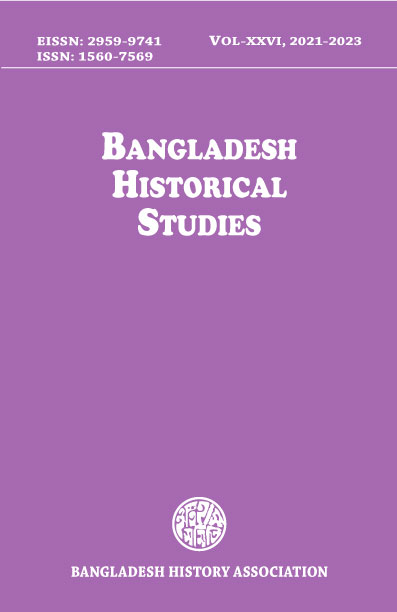The Bengal Famine of 1943: A Review of Socio-Economic and Political Aspects

The Bengal Famine of 1943: A Review of SocioEconomic and Political Aspects TARANA TABASSUM SWEETY M.A. (2020), Department of History, University of Dhaka.
https://doi.org/10.59815/bhs.vol2605
Abstract: In 1943, when World War II was raging in the international arena, Bengal was ravaged by a terrible famine. It is known as Panchasher Manwantar in vernacular sources as this famine occurred in 1350 of the Bengali calendar. According to the then Bengal government, natural calamities and wartime conditions were responsible for this famine. However, subsequent research by economic historians including Amartya Sen has shown that this famine was caused more by inflation rather than shortage of food crops. Different districts of Bengal witnessed the effects of this famine at different rates. The impact of this famine was felt prominently in the socio-economic and political life of Bengal. About three million people starved to death. About 6 percent of people were forced to sell all their property and 11 percent of people were forced to sell part of their land. A class of unscrupulous businessmen took over vast properties through black-marketing and hoarding, and the price of food in the market increased manifold going out of reach of common people. Artificial shortage of food was created. This famine marked the end of Bengal's social history of landbased aristocracy. Increase in anti-social criminal activities saw a loss of all social values. Diseases like malaria, cholera etc. became epidemic. All in all, life became deplorable. Naturally, the loss of three million lives in the famine and the administrative failure of the British government to deal with the famine created intense anger and frustration among people, which played an important role in the nationalist movement against British colonial rule. The far-reaching effects of the famine on the socio-economic and political life of Bengal will be the main focused of this article.
Key Words: The Great Bengal Famine, Socio-Economic Calamity, Nationalist Awareness.
VIEW FULL ARTICLES


